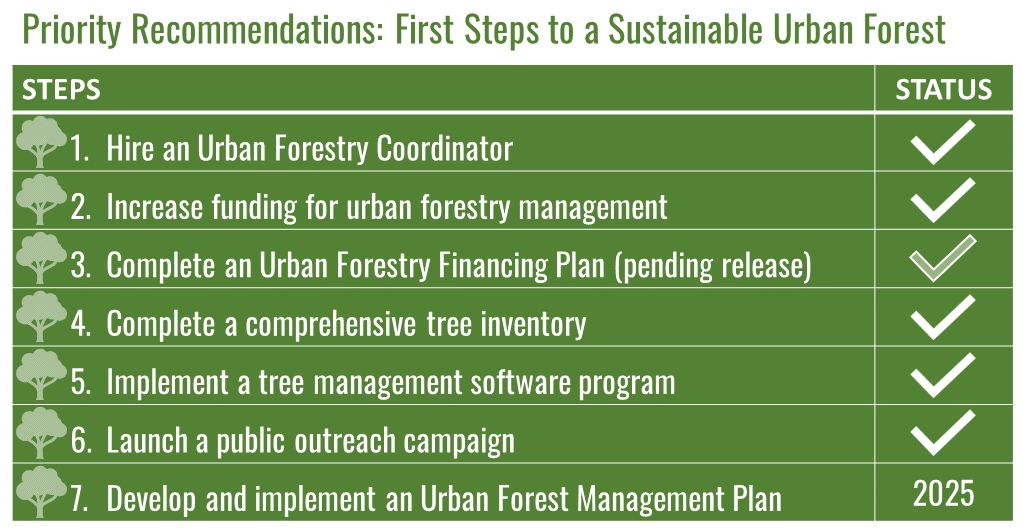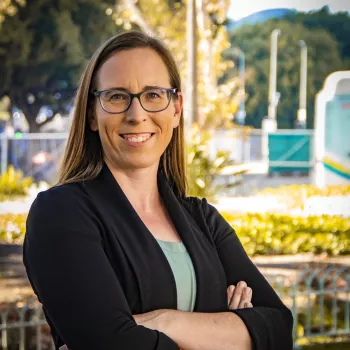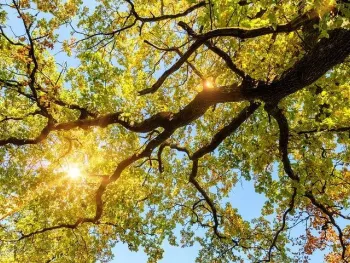
The Office of Forest Management (OFM) is housed within the Board of Public Works to ensure all of the City’s departments and external partners use an integrated and equitable approach to implementing the City’s urban forestry goals. The OFM oversees the development, implementation, and tracking of data-driven decision-making for the Los Angeles urban forest, which includes trees on both public and private property.
The current priorities of the OFM are:
- Developing the City’s first UFMP
- Addressing the long standing issue of Tree Canopy Equity
- Improving Tree Preservation policies and implementation
Urban Forest Management Plan
The OFM is responsible for spearheading the development of a citywide Urban Forest Management Plan (UFMP), which will include the vision for our urban forest and roadmap for achieving that vision. The UFMP will build on the information developed in the 2018 report First Step: Developing an Urban Forest Management Plan for the City of Los Angeles.
The City has already made progress on the Priority Recommendations found in the First Steps report:

In developing the UFMP, it is important that the priorities and values of our residents are included. The OFM and LA County collaborated on a survey and 50+ Neighborhood Workshops to gather feedback and hear from Angelenos. Check back here for additional opportunities to give feedback on the UFMP.
Tree Canopy Equity
Trees are an important part of the City’s infrastructure and a key strategy for protecting residents from urban issues of heat and poor air quality, especially in light of the climate crisis. In the City, the neighborhoods most impacted by these issues often also have the least tree canopy cover.
The UFMP will include a strategy for tree canopy equity throughout the City. This strategy will consider and include not only priority areas for tree planting and establishment care investments but also tree preservation and maintenance recommendations to ensure existing trees continue to grow and support the City’s tree canopy. Many Los Angeles neighborhoods with low tree canopy have physical limitations (such as narrow parkways or overhead wires) that impact the types of trees that can be planted in public spaces. Having a thoughtful, community, and data-informed approach to designing the future urban forest will be key to our success.
The OFM has partnered with research teams to better understand the issue of tree canopy equity and develop data and research-driven strategies for addressing it. These partnerships have included research and recommendations as well as community engagement in pilot neighborhoods. The City’s research partners have produced data and policy analysis, new research studies on the impact of various tree species on air quality, renderings on design scenarios that the City might consider, and recommendations for priority areas for planting. Additionally, the City’s research partners have conducted community engagement in pilot neighborhoods to ensure that their recommendations included neighborhood knowledge of existing issues and opportunities as well as feedback from residents and interested parties on their priorities and thoughts on draft designs.
See more on our partners’ work:
Tree Preservation Policy
Preserving mature trees is an essential piece of growing our urban tree canopy. The OFM is focused on improving the City’s overarching tree preservation approach and policy, first by working with City departments to review trees for preservation or removal, if necessary, early in the development of projects. The OFM is also working on improved policies as part of creating the UFMP. Some key areas of progress are the development, by the Department of City Planning, of a Tree Disclosure Statement and Tree Report Template for projects under their review. Many of the efforts to improve the City’s tree preservation process and policy can be seen in this report, written in response to Council File 15-0499-S2.

About the City Forest Officer
Rachel Malarich has over 16 years of experience in Southern California urban forestry with a focus on urban forest management, strategic planning, and community engagement. Before her appointment as City Forest Officer, Rachel served as Assistant Director of Environmental Services for Koreatown Youth and Community Center (KYCC), where she oversaw planting of thousands of trees in underserved communities in central Los Angeles. Prior to that, she spent a decade with Tree People, including three years as Director of Forestry. She is a Certified Arborist and Tree Risk Assessor Qualified with the International Society of Arboriculture and serves on the Board of the Street Tree Seminar, the local chapter of the California Urban Forest Council.
“Trees do more than contribute to the look and feel of our neighborhoods — they are a key tool to protect vulnerable populations, improve public health, and enhance community well-being for all Angelenos. I am honored to serve our great city under the Mayor’s leadership to help manage and expand our urban forest and prepare Los Angeles to confront the rising crisis of climate change.”
Follow Rachel on Twitter:@LACityForest
